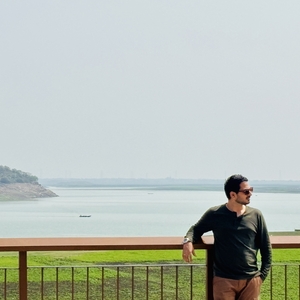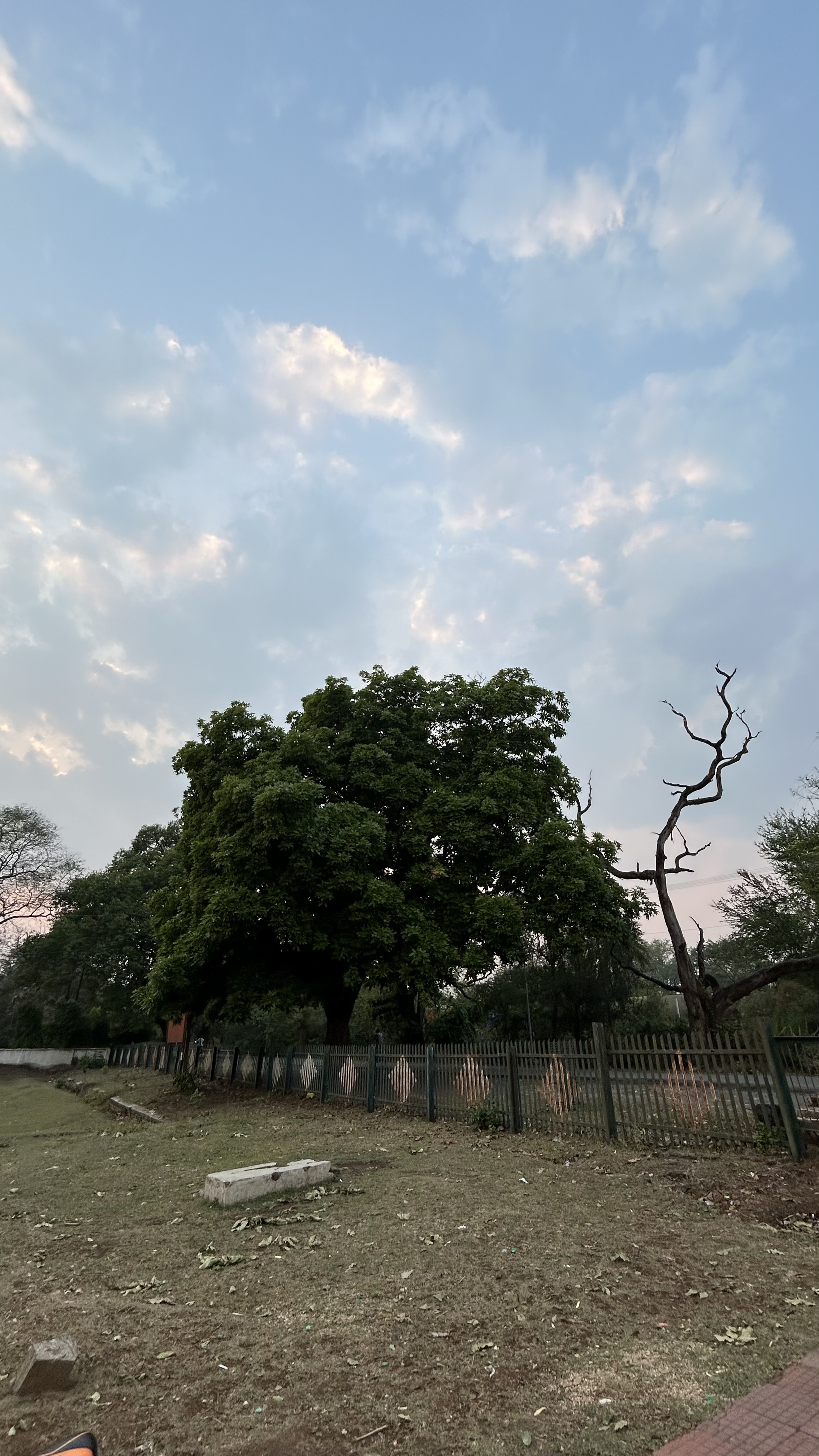Riya Mahato
"Environment Enthusiast!"
POINTS TOTAL
- 0 TODAY
- 0 THIS WEEK
- 1,520 TOTAL
participant impact
-
UP TO1.0energy auditconducted
-
UP TO1.0carbon footprintcalculated
-
UP TO2.0lightbulbsreplaced
-
UP TO1.0water footprintcalculated
-
UP TO2.0water collection systemsinstalled
-
UP TO1.0productreplaced with sustainable alternatives
-
UP TO2,760minutesof additional sleep
-
UP TO2.0donationsmade
-
UP TO740minutesspent exercising
-
UP TO1.0community eventhosted or attended
-
UP TO2.0advocacy actionscompleted
-
UP TO2.0hoursvolunteered
-
UP TO1.0new placesexplored
-
UP TO870minutesspent outdoors
-
UP TO110minutesspent learning
Riya's actions
Land, Water, and Air
Save Water When Washing Dishes
Dishwashers can save water — if used wisely. I will only run the dishwasher when it’s full and skip the pre-rinse to reduce water and energy use. If I don't have a dishwasher, I will turn off the tap as often as possible while washing dishes.
Health and Well-Being
Enjoy the Outdoors for 30 Minutes
Studies have shown that when we spend consistent time in nature, our health improves, our creativity increases, and our connection to the planet gets stronger. Each day of the Ecochallenge, I will spend 30 minutes outside, then share my observations, reflections, and learnings on the feed.
Health and Well-Being
Prioritize Getting Enough Sleep
Good sleep is essential for a healthy body and mind. I will prioritize getting 120 minutes of quality sleep each night and develop a bedtime routine that supports rest and relaxation.
Health and Well-Being
Exercise Daily
Daily movement supports our physical and mental health. I will spend 30 minutes each day exercising in a way that feels good to me, such as walking, running, stretching, or dancing.
Wildlife
Learn to be a Responsible Tourist
Being a responsible tourist means not disturbing wildlife and choosing eco-friendly tour operators and destinations that prioritize wildlife conservation and respect animal welfare. I will spend 30 minutes researching ways to travel responsibly to ensure my adventures support, rather than harm, wildlife and their habitats.
Wildlife
Plant (or Adopt) a Plant
Landscaping with native plants, gardening, and having plants inside can have benefits for nature and our health. I will plant or adopt a new plant or grow one from seeds and post a photo of it to the feed.
Community and Connection
Offer a Skill or Service
Sharing our talents can benefit those around us. I will offer my skills or services to support my community, such as helping someone with a task, tutoring, repairing something, or volunteering my expertise.
Sustainable Innovation
Replace Old Bulbs with LED Bulbs
Energy-efficient lighting is a bright idea. I will replace 4 incandescent light bulbs with Energy Star-certified LED bulbs, saving up to $14 per fixture per year.
Community and Connection
Explore My Area
Discovering what’s nearby fosters a deeper connection to my community. I will explore 3 new places in my area, such as parks, historical sites, or local businesses.
Wildlife
Learn How to Save the Bees
Bees and other pollinators are vital to ecosystems and agriculture. I will spending 20 minutes learning about local pollinators and why they are so important.
Land, Water, and Air
Reduce Food Waste
Wasting food also wastes water, energy, and resources. I will keep a daily log of food I throw away during the Ecochallenge, either because it went bad before I ate it, I put too much on my plate, or it was scraps from food preparation, and commit to reducing my food waste throughout the challenge.
Sustainable Innovation
Choose a Product Made with Sustainable Materials
Every choice matters. I will purchase or switch to products made from sustainable or recycled materials to support innovation and reduce environmental impact.
Health and Well-Being
Prepare for Extreme Weather
Extreme weather events like hurricanes, wildfires, and floods can disrupt lives and upend our communities. I will take proactive steps to prepare for extreme weather by safeguarding my home and creating or updating an emergency plan and kit with essential supplies, evacuation routes, and contact information.
Sustainable Innovation
Advocate For Better Food Packaging
When companies and governments make large-scale changes to their products and practices, it makes sustainability more accessible to the masses, in turn creating further demand for sustainable products, and the cycle continues. I will advocate for improved, sustainable food packaging through petitions, letters, or by supporting brands that prioritize eco-friendly packaging - and share my advocacy actions on the feed.
Community and Connection
Visit or Learn About a Culturally Significant Site Near Me
Sites of cultural and spiritual significance hold deep meaning for many communities, particularly Indigenous peoples. I will learn about or visit a site near me that is significant to the history, culture, or environment of the area. I will approach my visit with respect by researching its importance and guidelines beforehand, reflecting on how we can preserve these spaces for future generations.
Health and Well-Being
Replace a Product
Small changes can make a big difference for health and sustainability. Using what I learned from auditing ingredients in the products I use, I will replace 3 toxic or harmful products I use with safer, eco-friendly alternatives.
Wildlife
Learn to Grow Plants Your Way
Growing plants can be rewarding and can create habitats big and small for wildlife. And, we can grow things almost anywhere! I will spend 30 minutes researching options for growing plants either inside or outside.
Land, Water, and Air
Calculate My Carbon Impact
Knowing our carbon footprint is the first step to reducing it. I will calculate my carbon impact and identify lifestyle changes that could reduce the carbon footprint and impacts on the environment. I will share my commitments to lowering my impact on the feed.
Land, Water, and Air
Understand My Water Footprint
Each of us has a water footprint, directly linked to our daily activities as well as the water required in the production of things we use each day. Understanding our water use is important for a healthy planet. I will calculate my water footprint and look for a few ways I can reduce consumption or waste, then share what I learned on the feed.
Wildlife
Donate to Support Wildlife
There are many amazing projects supporting wildlife and their habitats. I will choose a project or organization to support that helps species and habitats I care about and make a donation.
Land, Water, and Air
Conduct a Home Energy Audit
Reducing energy use helps protect the air and climate. I will complete an online energy audit of my home, office, or dorm room and identify my next steps for saving energy and reduce pollution.
Land, Water, and Air
Join a Cleanup Effort
Working together to clean up public spaces helps the environment and builds community. I will participate in 2 community cleanup efforts in my neighborhood or local area.
Wildlife
Learn the 7 Principles of Leave No Trace
Leave No Trace means enjoying nature responsibly by minimizing our impact and leaving the environment as we found it, or better. I will spend 15 minutes learning about the seven core principles to minimize my impact while enjoying the outdoors.
Land, Water, and Air
Collect Rain Water
Rainwater collection reduces water waste and supports gardens. I will install a rain barrel or collect rainwater to use for 3 outdoor tasks, such as watering plants or cleaning.
Health and Well-Being
Audit Toxic Products in my Home
Many common products contain harmful chemicals. I will spend 30 minutes researching chemicals found in products I use, and I will make a list of products I'd like to replace with safer options.
Participant Feed
-
 Riya Mahato 4/29/2025 9:56 PM
Riya Mahato 4/29/2025 9:56 PM- Artist 🎨
- 16-DAY STREAK
Things I learnt and would love to continue:
1. Recycling and reusing
2. Reduce food wastage
3. Use water prudently
4. Spend time outdoors
5. Taking small steps towards sustainable life whenever possible-
 Saddamhusain Kasmi 5/01/2025 1:31 AM
Saddamhusain Kasmi 5/01/2025 1:31 AM- Community Builder 🤝
- 18-DAY STREAK
Riya your participation has been commendable and its great to see you would continue with some of the most important things! -
 Rachel Rosen 4/30/2025 6:12 AM
Rachel Rosen 4/30/2025 6:12 AM- ORG CAPTAIN
- Wildlife Guardian 🦉
- 16-DAY STREAK
-
 Danishulhaque Mohammed 4/29/2025 9:59 PM
Danishulhaque Mohammed 4/29/2025 9:59 PM -
 Shruti Bhavsar 4/29/2025 9:57 PM
Shruti Bhavsar 4/29/2025 9:57 PM- Book Lover 📚
- 17-DAY STREAK
-
 Yaswanth Kishore 4/29/2025 9:57 PM
Yaswanth Kishore 4/29/2025 9:57 PM- Plant Parent 🪴
-
 Riya Mahato 4/28/2025 9:26 PM
Riya Mahato 4/28/2025 9:26 PM- Artist 🎨
- 16-DAY STREAK
Feeling extremely satisfied on ending the Ecochallenge on a good note!-
 Rachel Rosen 4/29/2025 6:20 AM
Rachel Rosen 4/29/2025 6:20 AM- ORG CAPTAIN
- Wildlife Guardian 🦉
- 16-DAY STREAK
We are extremely grateful for all your amazing participation on the Ecochallenge, Riya!
Wednesday will be the last day and we hope to have your help closing this out strong :)
-
 Riya Mahato 4/27/2025 8:59 PM
Riya Mahato 4/27/2025 8:59 PM- Artist 🎨
- 16-DAY STREAK
Since online shopping has become a part of our life now, we often end up piling up a lot of cardboard boxes. Did you know that you can decompose those boxes and use as manure for plants? The boxes are a good source of carbon and fulfils the carbon-nitrogen ration the soil!-
 Samiksha Kamble 4/27/2025 11:17 PM
Samiksha Kamble 4/27/2025 11:17 PM- Earth Advocate 📣
- 17-DAY STREAK
-
 Riya Mahato 4/27/2025 8:12 AM
Riya Mahato 4/27/2025 8:12 AM- Artist 🎨
- 16-DAY STREAK
To beat the heat and keep my body cool, I have started consuming "sharbat"/juice of wood apple. The benefits of this fruit are as interesting as its name.The pulp has a slimy texture and is really good for stomach ailments and helps keep our body cool.-
 Rachel Rosen 4/28/2025 6:09 AM
Rachel Rosen 4/28/2025 6:09 AM- ORG CAPTAIN
- Wildlife Guardian 🦉
- 16-DAY STREAK
-
 Amit Mishra 4/27/2025 8:14 AM
Amit Mishra 4/27/2025 8:14 AM- Community Builder 🤝
- 17-DAY STREAK
-
 Riya Mahato 4/25/2025 9:22 PM
Riya Mahato 4/25/2025 9:22 PM- Artist 🎨
- 16-DAY STREAK
To beat the heat and conserve water, I have started taking showers in the morning. The reason being: the water in the overhead tank turns extremely hot by the afternoon and becomes unbearable to touch. Having showers in the morning has always been considered a healthy habit and keeps you fresh the entire day!-
 Rachel Rosen 4/28/2025 6:02 AM
Rachel Rosen 4/28/2025 6:02 AM- ORG CAPTAIN
- Wildlife Guardian 🦉
- 16-DAY STREAK
-
 Riya Mahato 4/25/2025 9:13 PM
Riya Mahato 4/25/2025 9:13 PM- Artist 🎨
- 16-DAY STREAK
I have started cooking extra food in lunch so that I can consume the remaining in dinner. This has helped me save time, energy and zero food wastage.-
 PRATEEK SINGHVI 4/25/2025 9:39 PM
PRATEEK SINGHVI 4/25/2025 9:39 PM- TEAM CAPTAIN
- Plant-Based Foodie 🥬
- 17-DAY STREAK
Food loss and waste control is important it carries vital impact to our earth land fill ecosystem in addition to plastic waste
-
 Riya Mahato 4/24/2025 9:47 PM
Riya Mahato 4/24/2025 9:47 PM- Artist 🎨
- 16-DAY STREAK
As a step towards sustainability, I have discarded the use of plastic combs and have switched to wooden combs. The comb below is made up of neem wood which is naturally formed with inherent antibacterial characteristics. This not only enhances overall scalp health but also reduces the risk of potential infections.
-
 sai krishna 4/25/2025 9:30 PM
sai krishna 4/25/2025 9:30 PM- Plant Parent 🪴
- 17-DAY STREAK
-
 Andrei Samrak 4/24/2025 9:54 PM
Andrei Samrak 4/24/2025 9:54 PM- Wildlife Guardian 🦉
- 17-DAY STREAK
-
 Tung Nguyen 4/24/2025 9:52 PM
Tung Nguyen 4/24/2025 9:52 PM
-
 Riya Mahato 4/24/2025 9:38 PM
Riya Mahato 4/24/2025 9:38 PM- Artist 🎨
- 16-DAY STREAK
Neem and Curry leaves, which occupy a cornerstone in both Indian cuisine and Ayurvedic practices, boast countless benefits. I have collected these leaves and am currently drying them under the sun for long-term preservation. Neem leaves are renowned for their use in treating skin allergies, owed to their potent antimicrobial properties. Similarly versatile, Curry leaves serve as key ingredients in numerous dishes, while their paste is used in hair masks, among other uses. These natural resources offer a variety of benefits that can be incorporated into our diet and holistic health practices.-
 Marlene Martin 4/25/2025 8:21 AM
Marlene Martin 4/25/2025 8:21 AM -
 AJIT URANKAR 4/24/2025 11:42 PM
AJIT URANKAR 4/24/2025 11:42 PM- Adventurer 🏔
- 17-DAY STREAK
That's a beautiful summary! You're doing a great job preserving and honoring the traditional knowledge around these incredible plants.
-
 Riya Mahato 4/24/2025 8:52 PM
Riya Mahato 4/24/2025 8:52 PM- Artist 🎨
- 16-DAY STREAK
Cycled yesterday with my cousin to explore my area and enjoy the fresh breeze!-
 Rachel Rosen 4/25/2025 6:52 AM
Rachel Rosen 4/25/2025 6:52 AM- ORG CAPTAIN
- Wildlife Guardian 🦉
- 16-DAY STREAK
-
 Georgiana Constantin 4/24/2025 9:14 PM
Georgiana Constantin 4/24/2025 9:14 PM- Pet Parent 🐾
- 17-DAY STREAK
-
 MOHAMED HANIEF 4/24/2025 8:53 PM
MOHAMED HANIEF 4/24/2025 8:53 PM- Community Builder 🤝
- 17-DAY STREAK
-
 Riya Mahato 4/23/2025 9:12 PM
Riya Mahato 4/23/2025 9:12 PM- Artist 🎨
- 16-DAY STREAK
Regarded as a superfood, aloe vera is a fantastic dietary addition, particularly during the summer season. The benefits of aloe vera are manifold. The gel derived from this plant, is a beneficial remedy for sunburns and can be used as a nourishing face mask. You can also incorporate it into shakes and juices, taking advantage of its positive effect on gut health. Additionally, as a hair mask, aloe vera gel can contribute to improving the health and condition of your hair and other potential benefits such a weight management. It is very easy to grow and doesn't require much attention.
-
 Marjorie Gizelle Dumdum 4/23/2025 9:40 PM
Marjorie Gizelle Dumdum 4/23/2025 9:40 PM- Exercise Lover 🤸
- 16-DAY STREAK
-
 Sree Bhuvana S 4/23/2025 9:14 PM
Sree Bhuvana S 4/23/2025 9:14 PM- Plant Parent 🪴





